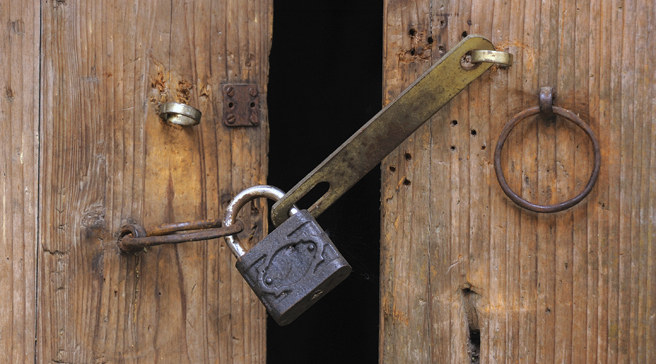Should family secrets remain hidden?
Is it ever a good idea to let family secrets out of the vault? By Sue Cowan-Jenssen

Most of us, if we’re lucky, grow up in loving families. But people are often full of contradictions and it is a rare family that doesn’t hold some sort of skeleton. Some of our buried secrets lose their power over the years, but others leave a damaging legacy.
In families with more shameful secrets, communication becomes difficult. Children’s natural curiosity may be met with hostility, questions are discouraged and lies are perpetuated. It isn’t easy to keep secrets hidden. We communicate in so many ways. Information is revealed by what we choose to talk about or not talk about. How we react, our body language, the expression on our faces all tell a story. Secrets in families have great potency because, like buried radioactive material, they can leak and spread poison.
As a psychotherapist, I often hear secrets that have never been told before, from clients who have found the burden of silence or lies too hard to bear. Therapy is a safe place where the sense of shame that is so frequently the cause of the initial secrecy can be discussed and reassessed.
Alison never told a soul that she was raped as a teenager. Her parents were devout Christians and she feared they would somehow blame her for what happened. When her own daughter Vivien entered her teens, Alison became anxious. She was excessively intrusive and questioned Vivien’s every move. Her daughter was resentful and became increasingly secretive under her mother’s over-anxious gaze. She started to stay out late and avoid home. Alison wasn’t fully aware that her anxiety had to do with her own experience, but in therapy she came to understand the full impact of the rape on her life. She could see that as an unsupported teenager, she had implicitly blamed herself rather than the rapist. With help from her therapist she could more honestly explain to her daughter why she had felt such fears for her safety.
Hiding the truth
Secrets can create a vicious circle of shame, hidden and unquestioned. Infidelity, abuse, mental illness, addictions and debt can all be hidden from view – they may even be buried in our subconscious. Some families do come to terms with the problems and bad behaviour of individual members, but where appearances are important, the family narrative cannot be changed, so evasion and dishonesty are used to protect the myth of the ‘acceptable’ family. Children raised in such families are given the message that certain difficulties are unacceptable, disgraceful and unmanageable, and they are not to be named.
When Jane’s job was under threat, she experienced panic attacks and felt suicidal. Her doctor referred her to a counsellor, who asked Jane to make a family tree. She encouraged her to talk about family members and Jane became aware of how little she knew about her paternal grandfather, who had died young. She discovered, on questioning her father, that her grandfather had committed suicide after his business failed and his wife left him. No one ever talked about her grandfather – his suicide was considered shameful – and Jane could see how the family inability to deal with the tragedy meant that they often over-reacted to the normal adversities that life can bring.
Secrets get in the way because appearance is more important than reality, which means anyone in trouble is left to cope alone. This can have damaging consequences. When Margaret was 10 years old she was sexually abused by her older brother. Margaret adored him, seeing him as her protector in their often violent family. She couldn’t bear to admit to herself that he was an abuser and so she coped by denying what was happening to her. She kept the secret with terrible consequences: she couldn’t accept what a risk her brother was to small girls and she was later unable to protect her own daughter from being abused by him.
Family secrets can have serious long-term consequences. A study at Liverpool John Moores University suggested that one in 25 children is raised by a man who does not realise he is not the child’s biological father. The consequences of this lie can be devastating. The mother often bears the secret alone, fearing the consequences of her infidelity. Very often it is not what is said that gives away the secret, but what is not said. For example, in families where there is no shadow over a child’s origins there is usually a lot of conversation about how a child looks and whether it looks like its mother or father or either of their families. If there are doubts about parentage, these are dangerous conversations that have to be avoided. Children pick up on their parents’ discomfort even when nothing has been said, and adults who discover the truth of their parentage often feel that they have always ‘known’ the truth. The secret, which might originally have been told to protect the marriage, can have serious consequences. Fathers may feel they have lost the child they knew, and children can feel that they have been profoundly betrayed, leaving them with a damaged sense of identity and huge sense of loss and grief.
Private lives
In families that refuse to accept homosexuality or mixed marriages, children who don’t conform may feel they have to conceal their private lives. Such secrets might feel too destructive to reveal, but with time and due consideration, it can be done. In The Boy With The Topknot, Sathnam Sanghera describes the conflict between the love he felt for his Sikh mother, who would never accept inter-marriage, and his identity as a successful, westernised Asian writer. He lied about his personal life for years, but lying took its toll as he struggled with the impossibility of his choices. He sought help, and was told that, while respect for one’s family is important, no family should demand the sacrifice of an individual’s personal happiness. His mother didn’t have the right to ask him to lead a life that suited her wishes but that wasn’t right for him. With guidance and support, and great trepidation, he was able to tell his mother that an arranged marriage could not work and he wanted to make his own choices. To his surprise, his ‘bombshell’ didn’t destroy his mother, or their relationship.
suecowanjenssen.co.uk








